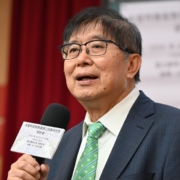【Post-Event Report】Challenges and Responses in the Development of Dementia Care Services Seminar (Part 1)
Taipei Medical University’s Center for Health Policy Research held the “Challenges and Responses in the Development of Dementia Care Services Seminar” on March 21, 2024. This seminar aimed to discuss the challenges facing dementia care services and propose corresponding response measures.
Director Lee Bozhang, Taipei Medical University Center for Health Policy Research
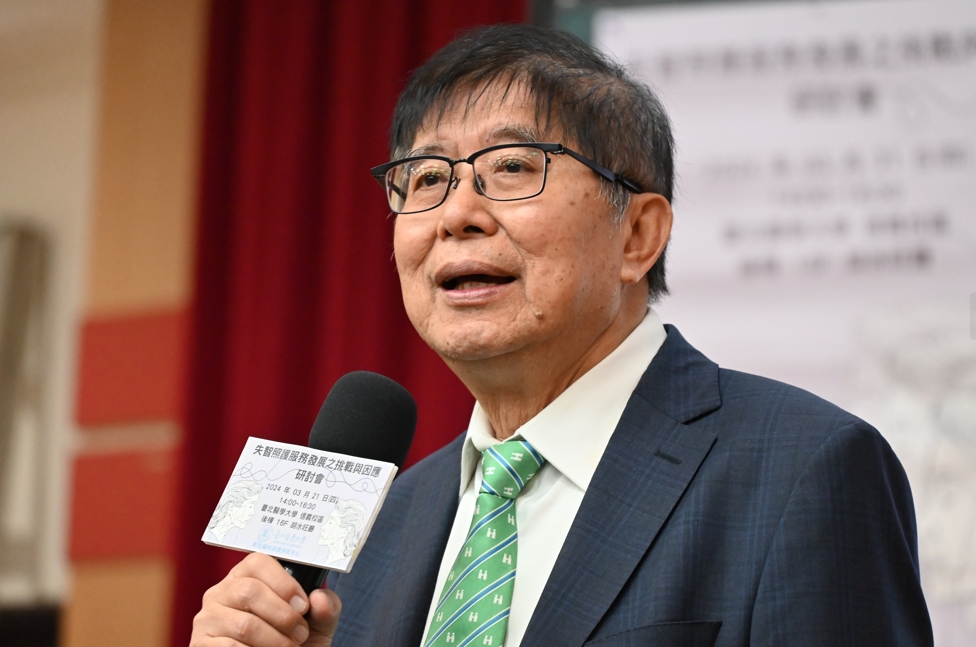
Director Lee Bo-chang mentioned in his welcome speech that the significance of hosting this seminar is profound. The purpose of organizing such events by the center is to engage with social issues, and in the future, the center will continue to focus on relevant social topics. Director Lee Bo-chang pointed out that dementia, as a social problem, has become a serious challenge in today’s society. He shared the difficulties he personally faced due to dementia, as well as the various challenges his family encountered. He mentioned the issue of inadequate medical resources, particularly the challenges in caring for dementia patients. Director Lee Bo-chang urged the government to provide more medical resources and support to address the increasing number of dementia patients and related needs. The purpose of this seminar is to highlight the importance and urgency of the development of dementia care services and to call on all sectors to pay attention to and jointly address this social challenge.
Professor Zhou Guiru, Distinguished Professor, School of Nursing, Taipei Medical University
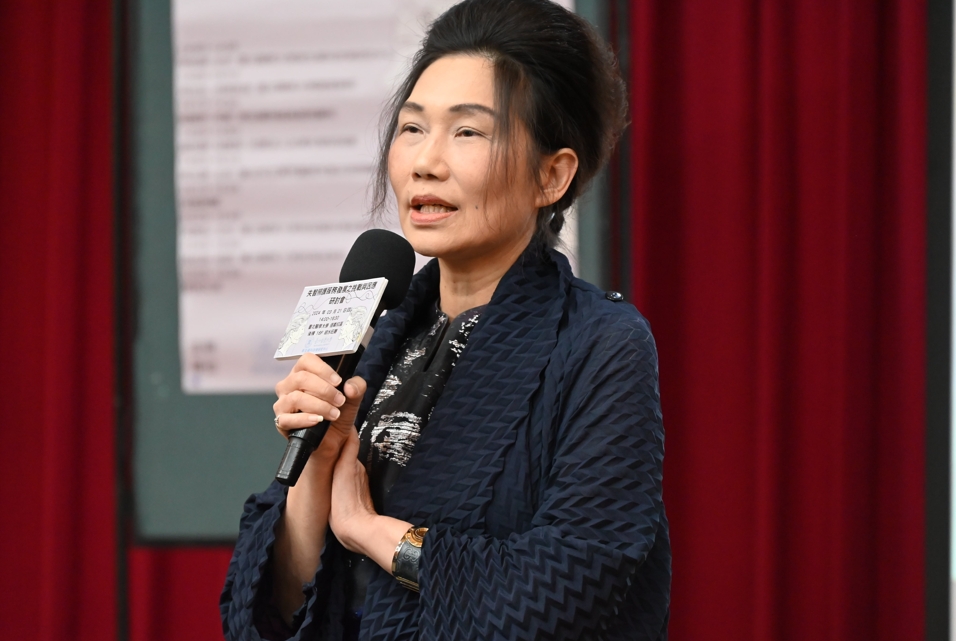
Professor Zhou Guiru, a distinguished professor at the School of Nursing, Taipei Medical University, highlighted several key points in his speech, demonstrating a profound concern for the policies related to dementia care and long-term care issues. Professor Zhou emphasized the importance of dementia care policies and shared his experiences working in relevant committees at the Legislative Yuan. He pointed out that Taiwan still faces many challenges in dementia care and emphasized the need for more proactive promotion of relevant laws and policies. Professor Zhou particularly stressed the importance of updating and improving policies and regulations to address the increasing aging population and the growing number of dementia patients.
With the trend of population aging, the demand for long-term care services is continuously increasing, yet there is a severe shortage of manpower resources. Professor Zhou called on the government to strengthen training and support for long-term care manpower and propose more relevant policies to address this issue. Additionally, he expressed special concern for the difficulties faced by long-term care families, mentioning some challenges in the subsidy program, and urged the government to consider and care more about the needs of these families, providing more support and assistance.
Director Zhu Jianfang, from the Department of Long-term Care under the Ministry of Health and Welfare, Taiwan, presented “Our Country’s Dementia Care Policy and Prospects.”
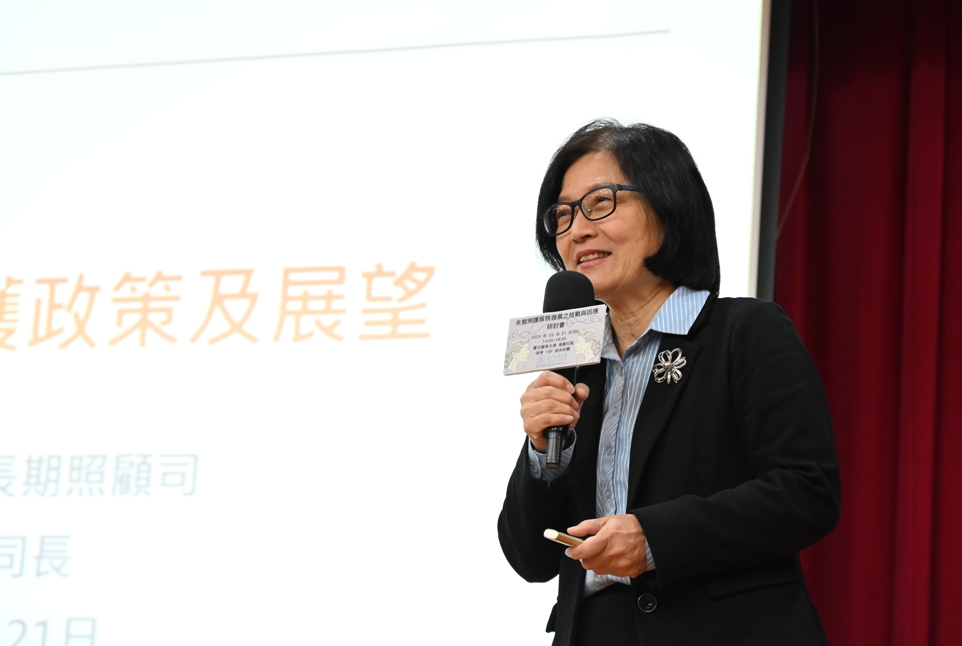
Director Zhu Jianfang calls for society’s collective attention to elderly health and dementia issues. Director Zhu emphasized the importance and significance of focusing on elderly health and dementia issues in her speech. She first mentioned the importance of service centers in communities, with currently over 500 service points serving more than 4,000 individuals. These centers provide support and services to dementia patients and their families, enabling them to cope more easily with the challenges of dementia. Additionally, the government has proposed an inclusivity policy, hoping that communities can collectively embrace dementia patients and reduce instances of service refusal through training and support for service personnel.
Director Zhu then discussed the goals of Health Policy 2.0, including extending healthy lifespans and reducing unhealthy longevity. She urged people to adjust their lifestyles, improve dietary habits, and sleep schedules to achieve these goals. The government has also proposed the Prevention and Care Policy Guidelines and Action Plan from 2018 to 2025, requiring local governments to formulate action plans according to policy requirements and publicly disclose implementation results to ensure effective policy implementation.
Finally, Director Zhu emphasized the government’s commitment to building a dementia-friendly society, raising awareness about dementia, reducing the stigma associated with dementia, and providing more support and services to dementia patients and their families. She introduced the integrated care network for dementia patients, emphasizing the importance of early intervention in delaying disease progression, and called on all sectors of society to work together to provide better care and support for dementia patients. These measures aim to increase awareness of dementia issues, promote community integration, and create a better living environment for dementia patients and their families.
Chen Yunjing, Secretary-General of the Taiwan Alzheimer’s Association – “Supporting Dementia Families: Social Resources, Advance Planning, and Care Systems”
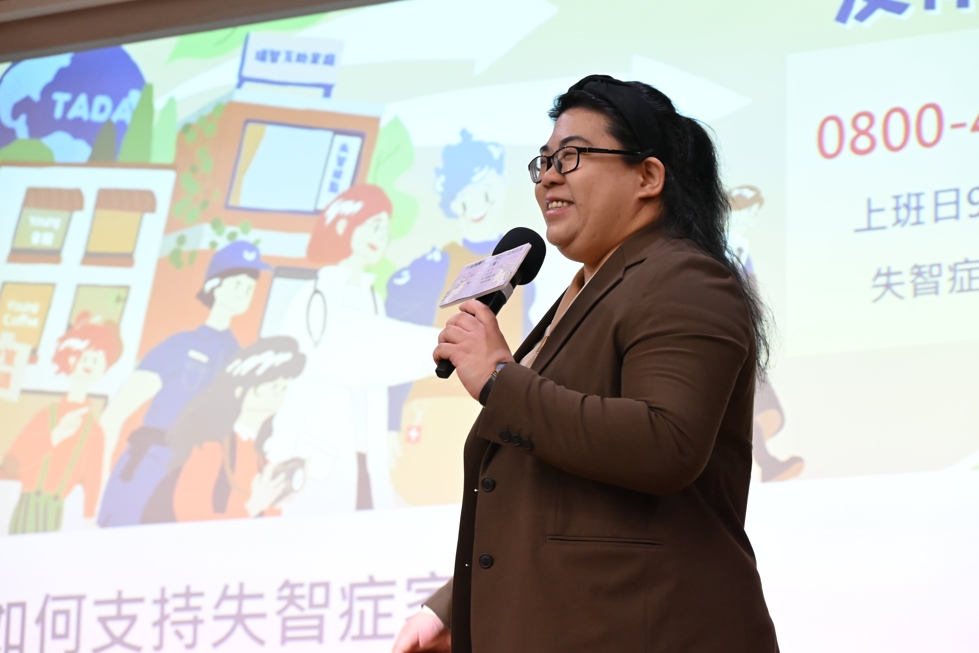
Secretary-General Chen Yunjing shared her experiences and observations during the speech, highlighting the challenges and needs that families face when dealing with dementia. She particularly emphasized the difficulties families encounter in assisting dementia patients with medical care, as well as the necessity for family members to possess knowledge and skills in managing various illnesses. She urged society to provide more support and understanding to help these families navigate their challenges.
Secretary-General Chen further pointed out that the onset of dementia may lead to shifts in family roles and responsibilities, which can cause frustration and anxiety among family members. Additionally, family members need to learn how to utilize resources such as social support centers and websites to address the needs of dementia patients. Chen stressed the importance of communication and understanding, calling for mutual support and assistance among family members.
Finally, Secretary-General Chen stated that the Taiwan Alzheimer’s Association will continue its efforts to provide various forms of support and information to help dementia families through difficult times. She underscored the significance of societal support for dementia families and urged the government, institutions, and the general public to work together to create a more friendly and supportive environment, enabling dementia patients and families to receive better care and support.

